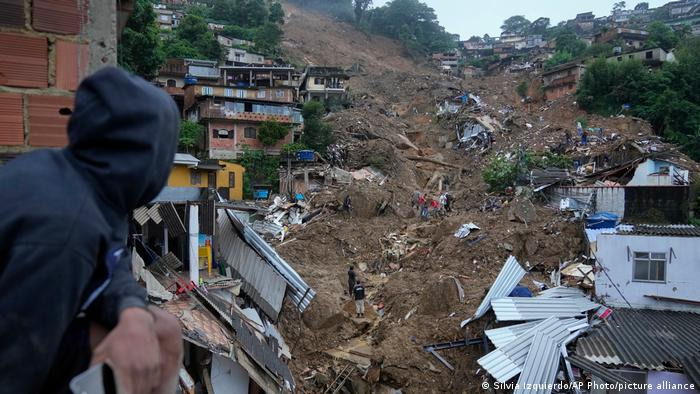
Photo: AP
By Guillermo Alvarado
More than 175 dead, a hundred missing and around 200 injured is the provisional balance of the landslides that affected the mountainous city of Petrópolis, in Rio de Janeiro, Brazil, according to a count published on Monday by authorities.
The figures are changing as rescuers manage to remove debris and layers of mud and stones that cover several streets of the city, while criticism is growing because timely measures were not taken to prevent an announced disaster.
Petrópolis is located 64 kilometers from Rio de Janeiro and in recent decades has been overpopulated due to a period of economic prosperity, which attracted tens of thousands of families from other parts of the South American giant.
As happens in many Latin American cities, people began to build houses crammed into the hillsides surrounding the place, usually without any urban planning and without the corresponding safety measures.
In 2017 some 20,000 houses, 18 percent of the total, were in high-risk areas, without any protection plan being implemented.
According to local authorities and President Jair Bolsonaro himself, the problem lies in the lack of resources to undertake the relocation of families, but the newspaper Folha de Sao Paulo revealed that, according to official reports, only half of the funds earmarked for disaster prevention were invested.
This is the most destructive event of its kind in that city, but not the only one to affect it so far. Such incidents are common in Brazil, where heavy rains are frequent in the southern summer and in recent years have been worsened by climate change.
This was the case just a week ago, when in just three hours a month's worth of water fell, loosening the soil and causing a succession of landslides that swept away houses, vehicles and people.
Although there is an alarm system for these eventualities, most of them are located in the center of the city and not in the most dangerous areas.
Rescue efforts have been interrupted several times by new downpours and landslides, so it is feared that the danger is not completely over there.
For a long time Bolsonaro and his followers denied the existence of climate change and favored the deforestation of vast areas, including the Amazon, but now nature seems ready to pick up the bill which, unfortunately, ends up being paid by the poorest.

